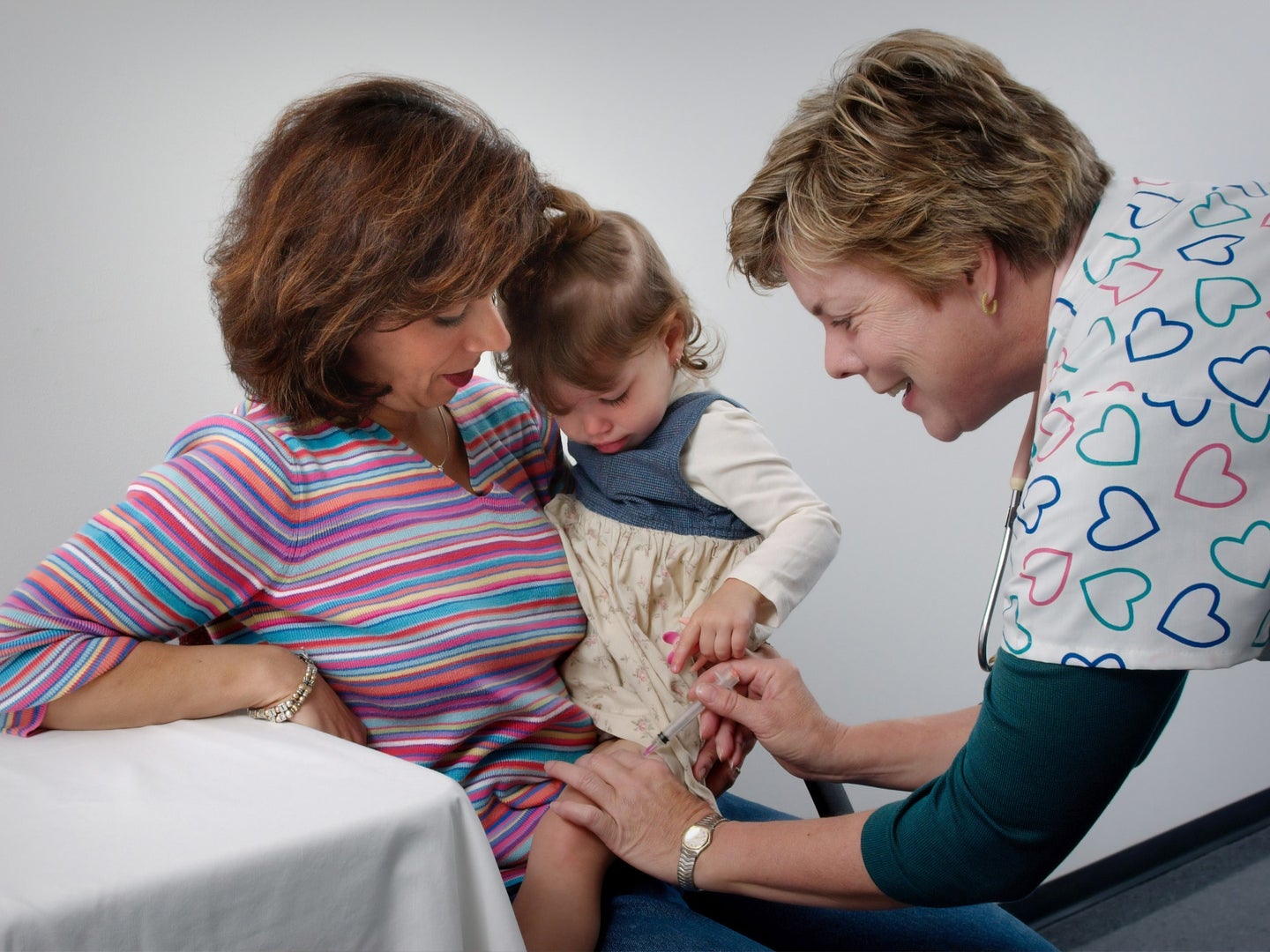Pfizer and Moderna are studying their COVID vaccines in kids as young as 6 months
The two companies have both begun clinical trials, which will last a number of years.

Click here to see all of PopSci’s COVID-19 coverage.
Pfizer and Moderna have both begun their COVID-19 vaccine clinical trials in children ages 6 months through 11 years.
The Pfizer trial, which started on March 24, will last two and a half years and involves more than 4,600 participants. With data from its previous trial in children ages 12 to 15 already coming in, Pfizer is starting a Phase 1 component to home in on optimal dosage sizes for three age groups: six months to one year, two to four years, and five to 11 years. The pharmaceutical company will then move on to a Phase 2/3 placebo-controlled trial with 450 randomized participants from each age group.
The Moderna trial (which also includes children as young as 6 months) began on March 15 and involves more than 6,700 participants who will also go through a randomized, placebo-controlled trial over the next two years.
The US has administered 235 million total vaccines so far, but just vaccinating adults is not enough to achieve herd immunity, and it might not bring case rates down significantly enough that COVID-19 is no longer a major threat. “Children under 18 make up 85 million people in [the] U.S. — about 20 percent of the population,” Stanford University pediatrician and epidemiologist Yvonne Maldonado, who is an investigator for the Pfizer trial, told ABC News. “Getting them vaccinated is a major contribution to reducing transmission of virus.”
[Read more: Which COVID-19 vaccine is the best?]
Data show that, while kids under 18 make up only 0.1 percent of COVID-19 deaths, they are still 12 percent of all cases. But while COVID-19 may seem far less common in children than in adults, the true impact of the pandemic on kids is still not known. The CDC says that determining the rate of infection in children is difficult since widespread testing tends to focus on adults and other vulnerable populations.
And parents are eager to get their kids vaxxed and safely back in school. Infectious-disease physician and vaccine expert, Kawsar Talaat, told Nature that parents kept calling and calling to get their kids enrolled in vaccine trials.
It’s not clear yet what side-effects, if any, children may experience when given the vaccine. While information on side-effects from adults can help, kids’ immune systems are still developing and its not possible to compare an adult’s immune system to a child’s. These trials will be taking into account how children’s immune systems differ from adults’, and scientists will be closely monitoring the children as the trials go on. As Talaat told Nature—“Children are not little adults.”
